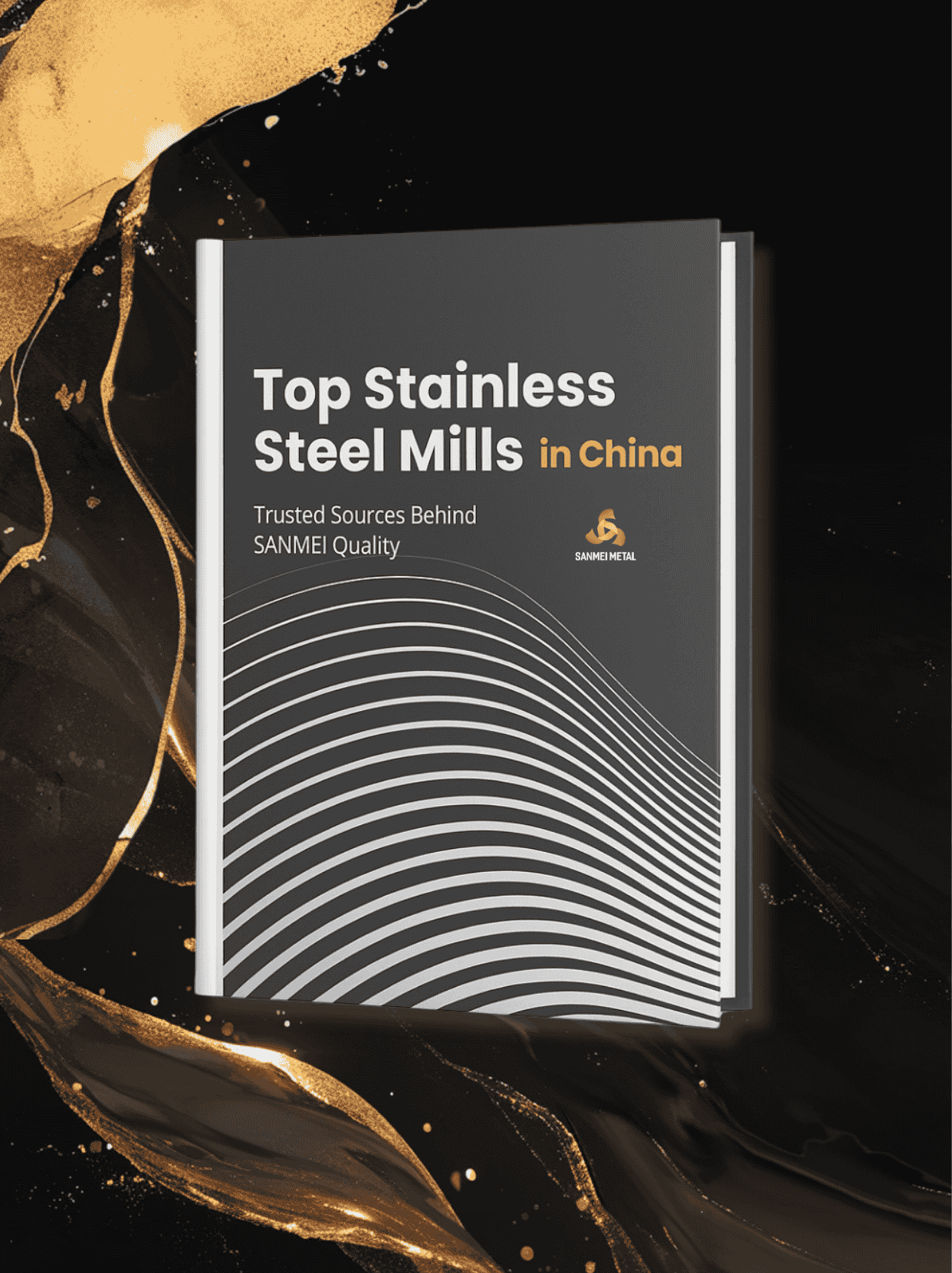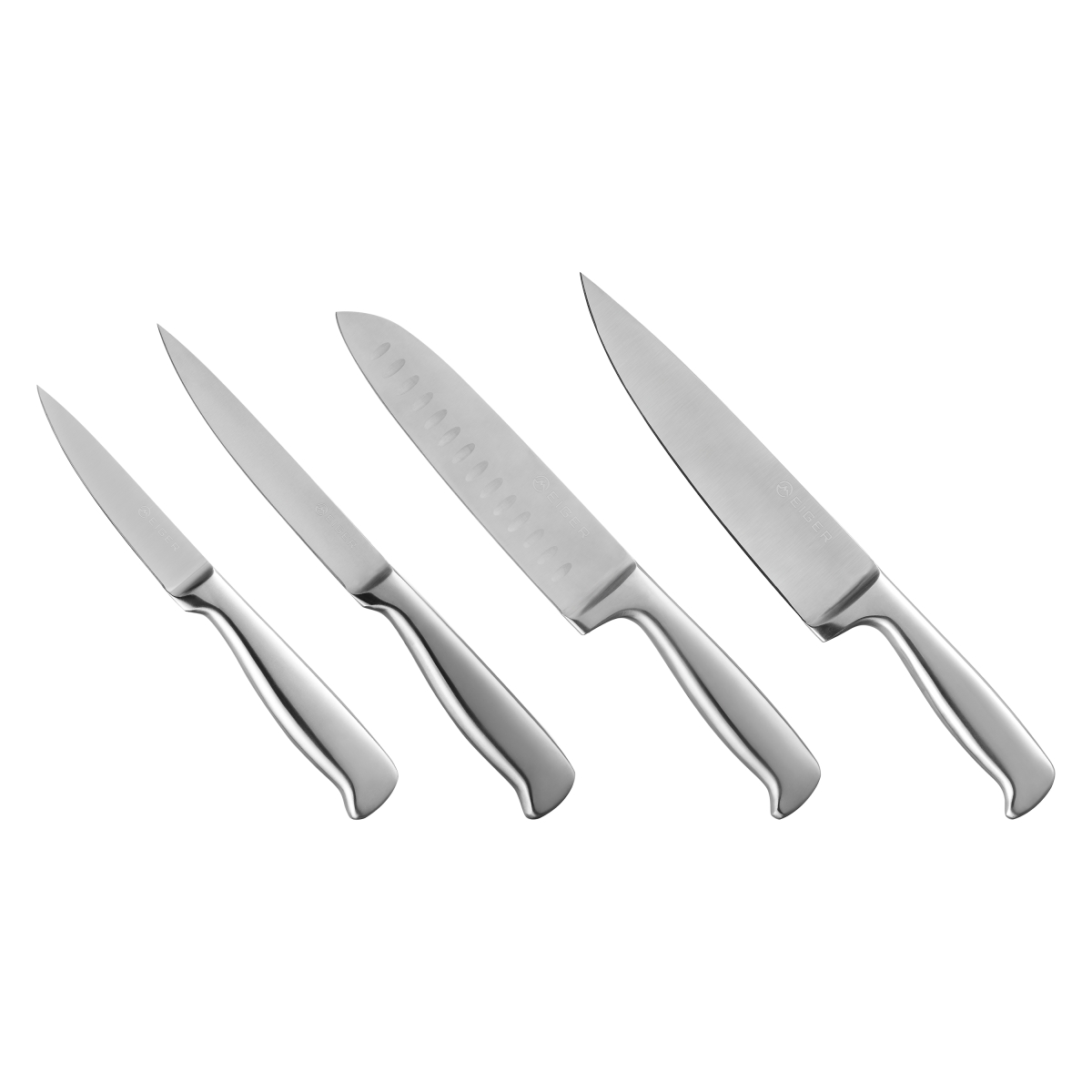
Получите свой БЕСПЛАТНО Доступ: Досье китайского сталелитейного завода #1
Ориентировано на покупателя: подбирайте мельницы по классу/отделке/ширине-толщине/применению
БАОВУЦиншаньЛискоТиско
Посмотреть подробности и примеры →


Отличная коррозионная стойкость для предотвращения загрязнения

Нереактивность с кислой, соленой или горячей пищей

Гладкая, легко очищаемая поверхность для гигиенических стандартов

Стойкость к высоким температурам для приготовления пищи
Оборудование для приготовления пищи из нержавеющей стали, такое как кастрюли, тостеры и грили, в первую очередь должно быть нетоксичным и безопасным для контакта с пищевыми продуктами. Кроме того, для высококачественной кухонной утвари решающее значение имеют такие эксплуатационные характеристики, как коррозионная стойкость, устойчивость к высоким температурам и простота очистки и обслуживания.
Нержавеющие стали марок 304, 304L, 316, 316L, 321, 309S и 310S известны своей превосходной эксплуатационной эффективностью в условиях высоких температур и устойчивостью к ржавчине, что делает их идеальными для изготовления различного кухонного оборудования.
Кухонная мебель и приборы из нержавеющей стали должны не только соответствовать требованиям по коррозионной стойкости и высокой прочности, но и быть эстетически приятными в качестве демонстрационной мебели. Кроме того, в условиях кухни, где много жира, важны простота очистки и обслуживания.
Нержавеющие стали марок 304, 304L, 409, 430, 2205, 2207, 436, 439 и 441 обладают превосходной коррозионной стойкостью, механическими свойствами и могут сохранять привлекательный внешний вид, что делает их пригодными для изготовления кухонной мебели и бытовой техники.
Нержавеющая сталь, используемая в контейнерах для хранения продуктов питания и столовых приборах, не должна вступать в реакцию с продуктами питания. Кроме того, эти контейнеры должны иметь высокую коррозионную стойкость из-за добавок в некоторых продуктах питания. Легкость очистки также является существенным преимуществом этих материалов.
Нержавеющая сталь, используемая в столовых приборах и питьевых принадлежностях, должна обладать хорошей твердостью и износостойкостью, особенно для ножей, где высокая твердость и прочность являются существенными. Для современных потребителей столовые приборы и питьевые принадлежности — это не просто емкости, но и декоративные элементы, которые повышают эстетическую привлекательность их коллекции.
| Оценка | Основные характеристики и применение |
|---|---|
| Серия 201 (J1~J4) | Экономичные контейнеры для кратковременного контакта с пищевыми продуктами |
| 304 / 304L | Промышленный стандарт для использования в пищевой промышленности, устойчив к коррозии и нагреванию |
| 316 / 316L | Высокая производительность при обработке кислых, соленых продуктов и морепродуктов |
| 321 / 309С / 310С | Устойчив к высоким температурам, идеально подходит для промышленных печей и барбекю |
| 409л / 410 / 410С | Прочный, износостойкий, идеально подходит для ножей и столовых приборов. |
| 420J1 / 420J2 | Высокая твердость для режущих инструментов и утвари |
| 430 / 436 / 439 / 441 | Хорошая формуемость и экономичность, широко используется на домашних кухнях. |
| 2205 / 2207 | Дуплексные стали для жестких условий обработки, отличная прочность и коррозионная стойкость |
Компания SANMEI предлагает сертифицированную пищевую нержавеющую сталь в рулонах и листах с такими видами отделки поверхности, как 2B, BA, No.4, HL и зеркальная полировка — идеально подходит для кухонного оборудования, бытовой техники и линий по переработке пищевых продуктов.
Но как узнать, действительно ли то, что вы покупаете, безопасно для пищевых продуктов? На таких рынках, как Китай, где стандарты качества материалов различаются, крайне важно проверять источник. 👉 Действительно ли пищевая нержавеющая сталь, которую вы покупаете в Китае, пригодна для пищевых продуктов?
Прочитайте наше руководство, чтобы узнать, что следует проверять и как выбрать подходящего поставщика.
Штаб-квартира:
Центр создания, № 142, улица Юйхэ, город Лецун, район Шунде, город Фошань, провинция Гуандун, Китай. 528315
Фабрика: Город логистики Лиюань, город Чэньцунь, район Шунде, город Фошань, провинция Гуандун, Китай. 528313
Местная база поддержки в Австралии: (Ятала, Квинсленд) – выйдет в 2026 году